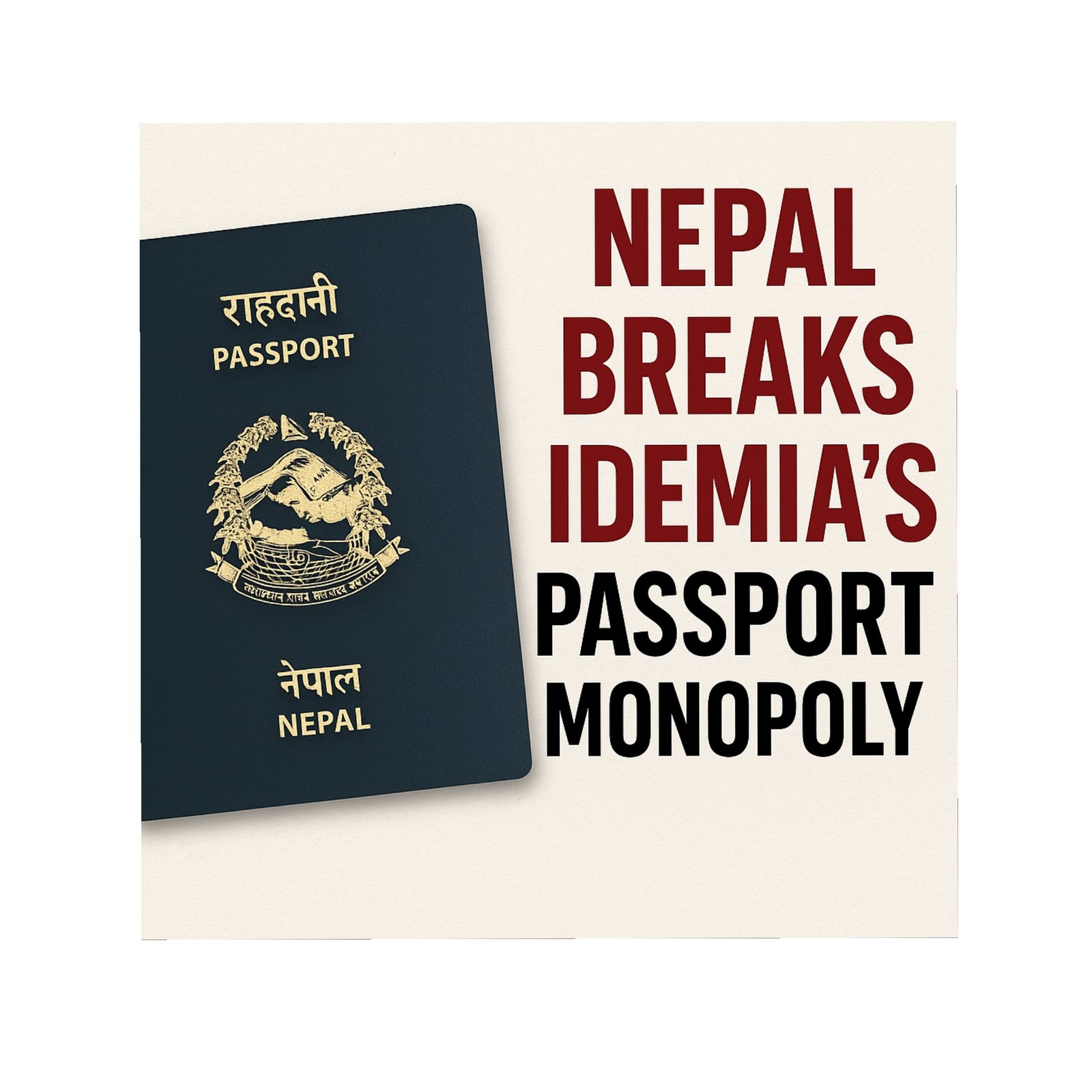The Government of Nepal has officially ended the 16-year-long dominance of French company IDEMIA in the country’s passport production system. Two German firms—Veridos GmbH and Muehlbauer High Tech International—have won the latest international tender for biometric passport printing, effectively breaking what many critics described as a longstanding monopoly.
IDEMIA had been in control of Nepal’s passport system since around 2009; initially, it provided machine-readable passports and later transitioned to biometric e-passports.
🚨 Shift to German Providers
The Department of Passports (DoP), under the Ministry of Foreign Affairs, confirmed that the German firms jointly submitted a lower and more technically favorable bid of NPR 7.22 billion, compared to IDEMIA’s NPR 7.51 billion. Officials say the decision was made after thorough evaluation of both cost and technology.
> ““This move is about transparency, competition, and better service delivery. Consequently, we’ve opened the door to new technology and fair procurement,” said an MoFA source.
⚖️ Legal Challenge from IDEMIA
In response, IDEMIA has filed a formal complaint with the Public Procurement Monitoring Office (PPMO), citing irregularities in the evaluation process and alleging unjust disqualification.
Despite the protest, the Ministry plans to move forward with the German vendors unless legal orders dictate otherwise.
🛂 What Changes for Citizens?
The contract includes new security features and faster production timelines. Consequently, citizens are expected to benefit from:
Improved passport delivery speed
Enhanced chip-level security
More efficient service at District and Embassy levels
Better tracking and transparency
The new contract will deliver initial shipments in early 2026, and the team will start installation and training later this year.
🗣️ Public Reaction on IDEMIA
Furthermore, many have welcomed the decision as a long-overdue move towards modernization and competitive governance.
📌 Conclusion
Nepal’s decision to end IDEMIA’s 16-year passport monopoly marks a major shift in national identity management. With German firms taking over, the government aims to rebuild public trust and deliver a faster, more secure passport system.


